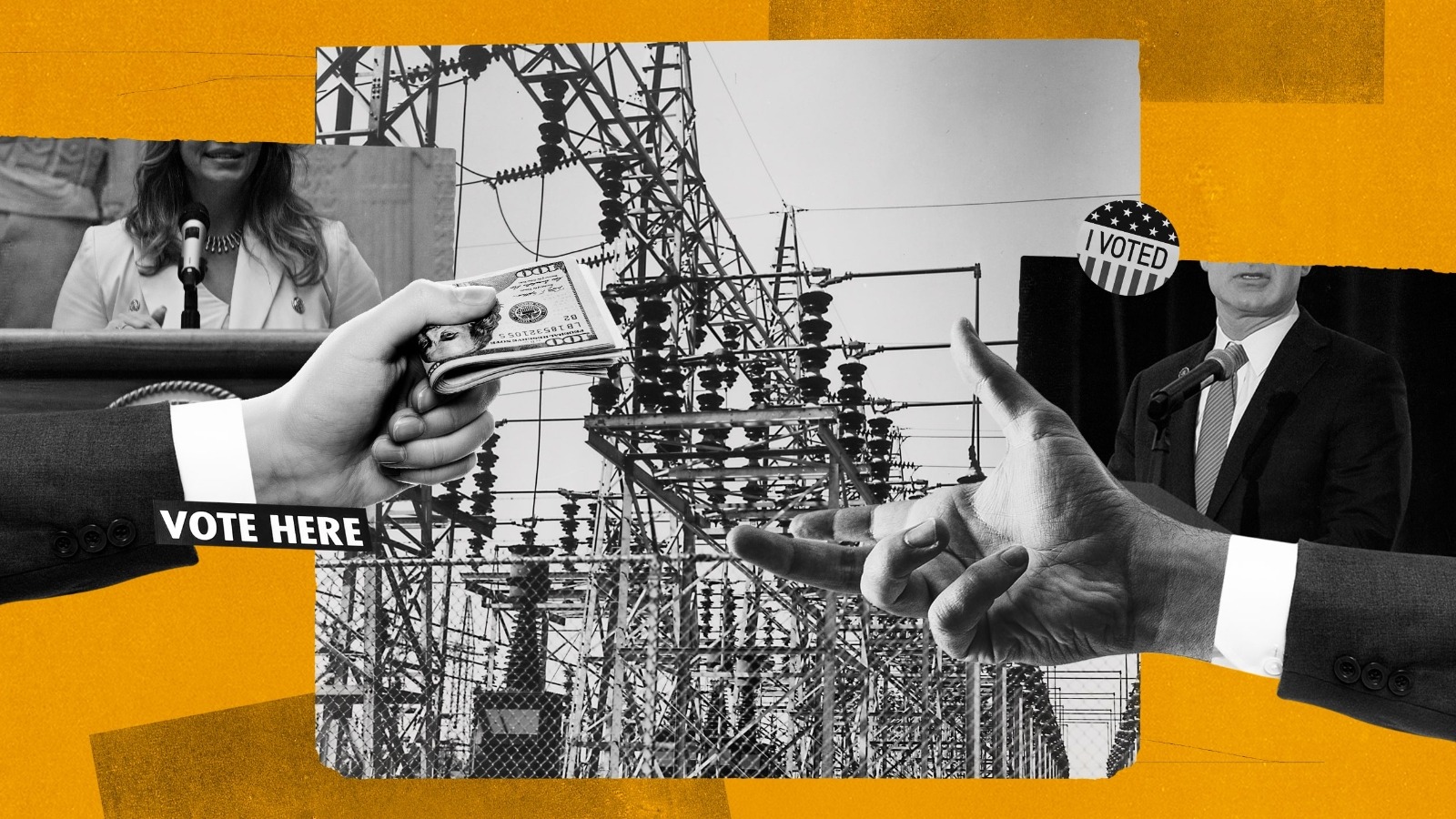It was 2:30 in the morning on November 6, 2014, when flames engulfed the New Orleans home of political consultant Mario Zervigon. Someone had lit his cars on fire, and the flames spread to his house. Zervigon and his family barely made it out of the three-unit building alive. Multiple cats didn’t.
Law enforcement deemed it arson and investigated whether the fire was related to Zerivigon’s campaign work. (The case would ultimately be closed without naming a suspect.) The night before the fire, Zervigon had celebrated the primary election victory of one of his clients for a seat on Louisiana’s Public Service Commission (PSC), a down-ballot position with vast power over the state’s oil, gas, and utility companies.
The candidate, Forest Bradley-Wright, was running as a Republican on a reform platform. He had rejected donations from companies the PSC oversees — a rarity in Louisiana. But the firebombing rattled his campaign. Zervigon took a leave of absence, Bradley-Wright’s fundraising flagged, and another candidate, who had received generous support from the companies in question, eked out a 1.6 percentage point win in the general election.
Bradley-Wright now says he believes the firebombing was an act of “political terrorism” meant “to intimidate or at least cripple my campaign.” He argues the incident is worth revisiting because it shows just how high the stakes can get in the election of regulators charged with making, in some cases, billion-dollar decisions and shaping a state’s energy policies.
U.S. Bureau of Alcohol, Tobacco, Firearms and Explosives / Courtesy of Forest Bradley-Wright
“Public utility commissions — especially in the context of climate change — are really important institutions that most people aren’t even aware exist,” said Jared Heern, a Brown University researcher who studies the relationship between the commissions and the industries they regulate.
But fossil fuel companies and electric utilities, their lawyers and consultants, are well aware of their importance.
A new Floodlight analysis of campaign finance data in nine of the 10 states that elect their commissioners found that more than a third of their contributions of $250 and up are from fossil fuel and electric utility interests — more than $13.5 million in all.
The analysis covered contributions to the 54 commissioners elected in the 10 years ending on December 31, 2023. On Tuesday, voters will choose among 33 candidates vying for utility commission seats in eight of those states.
The states examined were Alabama, Arizona, Georgia, Louisiana, Mississippi, Montana, North Dakota, Oklahoma, and South Dakota. Nebraska, which elects its commissioners but has no private electric utilities, was excluded. In the remaining 40 states, utility regulators are appointed by governors and/or legislative leaders.
Topping the influence list is Alabama, where commissioners get almost 55 percent of their support from fossil fuel and utility interests. Louisiana is second, with nearly 43 percent. Overall, those interests contribute more than twice as much as the renewables industry does to elect commissioners they believe will be friendly to their interests.
The renewables donations accounted for only $5.1 million, or 13 percent, of the roughly $39 million analyzed.
The findings suggest that the electoral influence of fossil fuel and utility contributors may be interfering with some states’ ability to decarbonize, with consequences for consumers and the environment alike.
Indeed, a number of the states are located in the Sun Belt, making them ideal for solar energy development, yet their commissioners’ decisions have ensured that only a tiny fraction of their power mix comes from the sun. In some cases, commissioners appear openly hostile to the adoption of renewables, far more of which will be needed to limit the catastrophic effects of climate change.
This failure to adapt is a bad deal for homeowners and businesses. Residential energy bills in Alabama, for example, exceed the national average by $32 a month, and bills in Georgia, Louisiana, and Mississippi have increased faster than the national average over the past five years, according to data from Findenergy.com. This year in Arizona, power bills spiked amid the state’s hottest summer on record. In Oklahoma, commissioners approved so many fracking applications that the state briefly led the country in earthquakes.
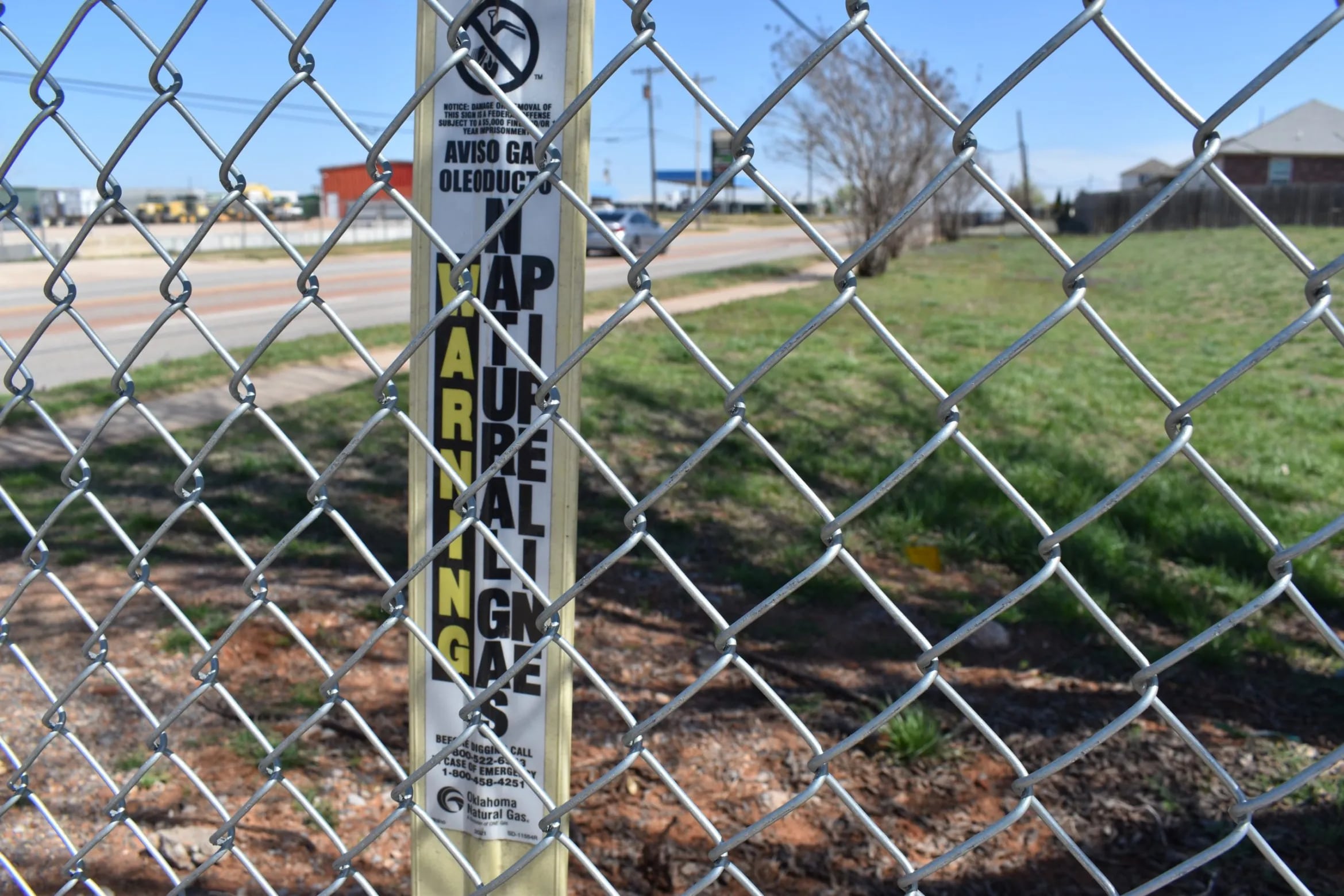
Paul Monies / Oklahoma Watch
“It’s kind of ludicrous on its face,” said journalist David Roberts, who hosts an energy policy podcast called Volts, “that commercial entities directly regulated by these people are allowed to give these people money.”
In fact, Alabama, Georgia, and Mississippi prohibit regulated utilities from making direct campaign contributions to commissioners. But in all of those states, Floodlight’s analysis found, contractors, attorneys, and political action committees closely aligned with the utilities keep the money flowing.
“(When) the people regulating the utility are essentially propped up by the utility itself, it’s problematic,” said Ari Peskoe, director of the Electricity Law initiative at Harvard University. “I think everybody can recognize that as a conflict of interest.”
Money buys more time — for commissioners
It also turns out that the commissioners who get a large share of their campaign cash from sources linked to fossil fuel firms and utilities tend to stay in office longer than their colleagues.
Nationwide, utility commissioners serve 5.9 years on average. In states where they are elected, these officials became more entrenched, serving 7.4 years — and a whopping 9.2 years in states where fossil fuel and utility interests account for at least 30 percent of their campaign contributions, according to Floodlight’s analysis of data provided by Heern.
Consider Alabama PSC member Jeremy Oden. During his 12 years in office, Oden, a Republican, received about $1.3 million, roughly 80 percent of his campaign funds, from sources with links to fossil fuel companies and utilities.
While Alabama commissioners cannot take money directly from the companies they oversee, our analysis and leaked records revealed that Oden’s top donors were political action committees operated by accountants with long-standing ties to consultants for Alabama Power, the state’s largest utility.

Oden did not respond to requests for comment. Tim Whitt, a principal of the campaign committee to elect Oden, provided a written statement. “All of his campaign contributions have been received and reported in accordance with Alabama law,” it stated, adding: “Commissioner Oden has not received any campaign contributions from regulated utilities.”
The cash flowing into Oden’s campaign coffer has come in handy for tight races, like the first round of the Republican primary in May 2022. If he won the primary, Oden, already in office for a decade at the time, would be certain to win the general election in deep red Alabama.
The three Republicans running against him were calling for more renewable energy and cheaper bills. Alabama, a state with strong solar potential, generates less power from solar arrays than even low-potential states such as Maine and Michigan. It saddles utility ratepayers with some of the nation’s highest electric bills.
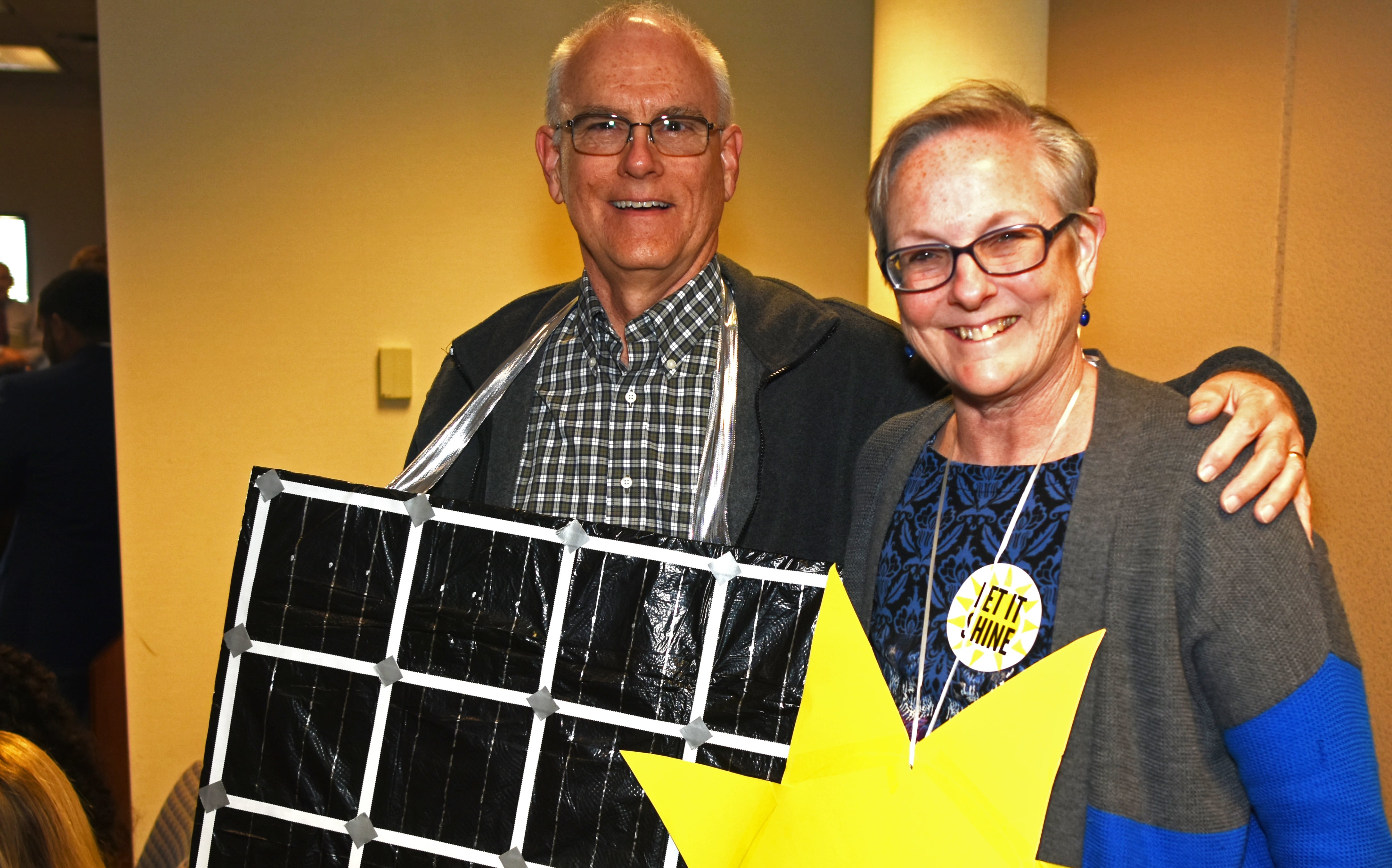
Solomon Crenshaw Jr. / BirminghamWatch
So what did Oden do? He took to the airwaves, appearing in TV ads dressed in hunting gear and wielding a shotgun. Calling himself “a Christian conservative pro-Trump Republican,” who “would always fight and defend our God-given Second Amendment rights,” the bald, bespectacled commissioner took aim, but not at his opponents.
“With your help, I’ll shoot down Biden’s Green New Deal and keep the left from jacking up our energy prices,” Oden narrated over footage of him downing clay pigeons.
Bolstered by his advertising budget, he won 34 percent of the vote in the four-candidate field, before going on to clinch the primary runoff, and later, the general election.
As a commissioner, Oden has taken aim at clean energy, imposing steep fees on families who install home solar panels, making it a bad investment choice even though those households would be using far less utility-generated power than before. And he voted for a series of rate increases that have led to Alabama having the Deep South’s second highest energy prices.
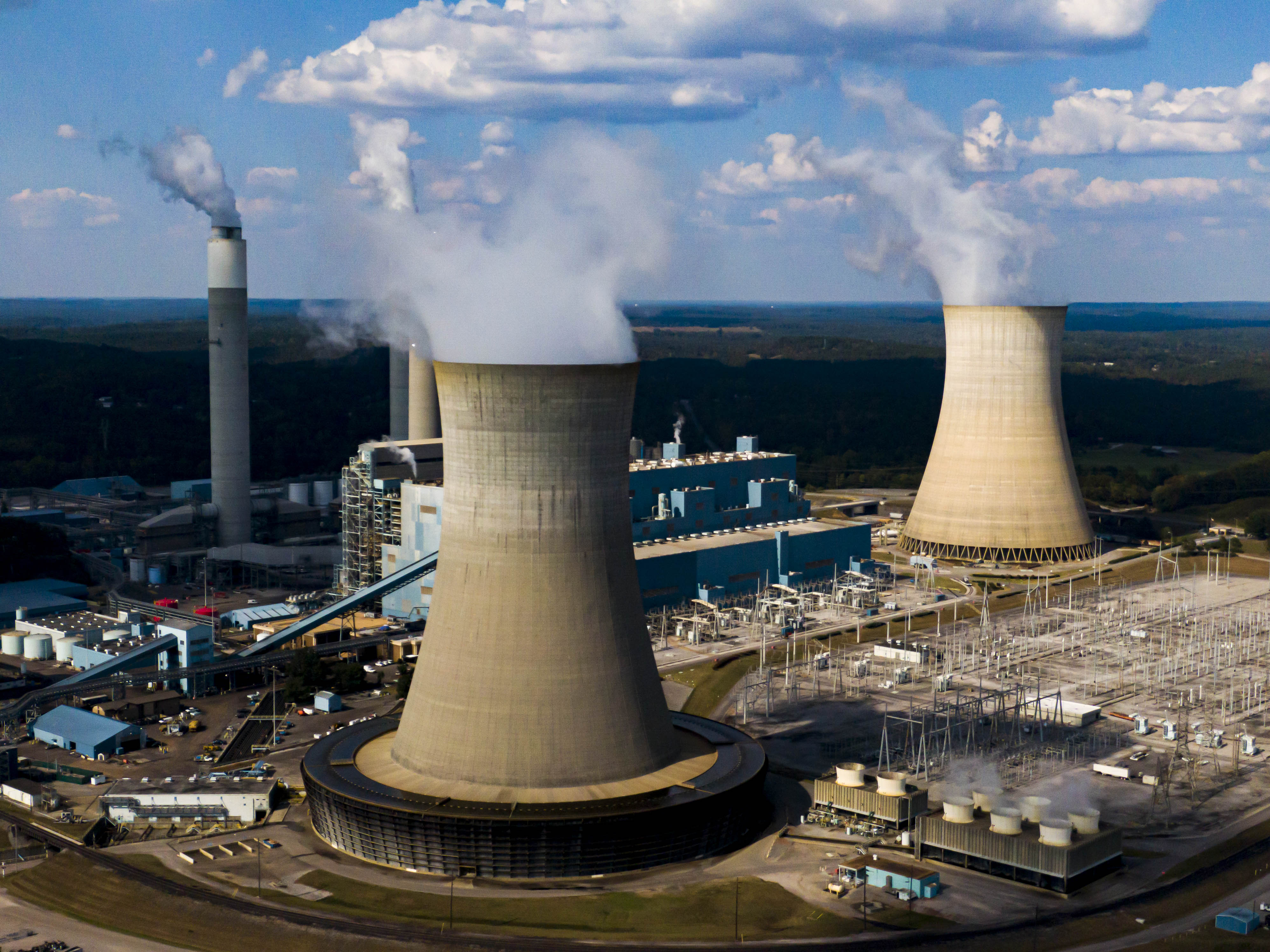
Lee Hedgepeth / Inside Climate News
Oden and his fellow commissioners have also blocked utility-scale solar and battery storage projects, even some requested by Alabama Power. Such moves — raising the cost of electricity while preventing customers from generating their own — benefit the shareholders and top officials of the utilities Oden is charged with regulating.
“The influence of money in (utility commission) elections is very high because in a vacuum of information, whoever has the most money gets their message out the best,” said Joshua Basseches, an assistant professor at Tulane University who studies energy and climate policy. “In theory, the elected commissioners would be less susceptible to regulatory capture, because they would have to face the voters,” but “in practice, what happens is that these are very low-visibility elections.”
Voters, in other words, have little to go on.
The high cost of ‘regulatory capture’
Utility commissions are charged with overseeing the complex activities and fielding the demands of the massive energy conglomerates that the state has granted regional monopoly powers. Commissioners vet new projects, monitor utility financials, and evaluate rate hike requests. The companies, meanwhile, are ensured a guaranteed return on investment, which averages about 10 percent nationally.
Though each commission is different, their basic mission is the same: to ensure a safe and reliable grid and affordable energy for consumers. But sometimes the relationship between regulator and regulated gets a little too cozy, a phenomenon economists call “regulatory capture.”
“Investments in political candidates — and particularly for economic regulators like a utility commissioner — there’s no better market return,” said Tyson Slocum, director of the energy program at Public Citizen, a nonprofit consumer advocacy organization. “The amount of benefit that a utility can get, that a fossil fuel interest can get, from a friendly regulator, is better than anything that the stock market can provide.”
Regulatory capture can be costly to consumers. Since 2017, electricity bills in Georgia have increased by about $45 a month, more than double the national average, according to data from FindEnergy.com. Electricity rates, which constitute just a portion of the bill, have kept pace with the national average. Most of the increase is due to surcharges to pay for the $35 billion buildout of a nuclear generating station originally forecast to cost $14 billion.
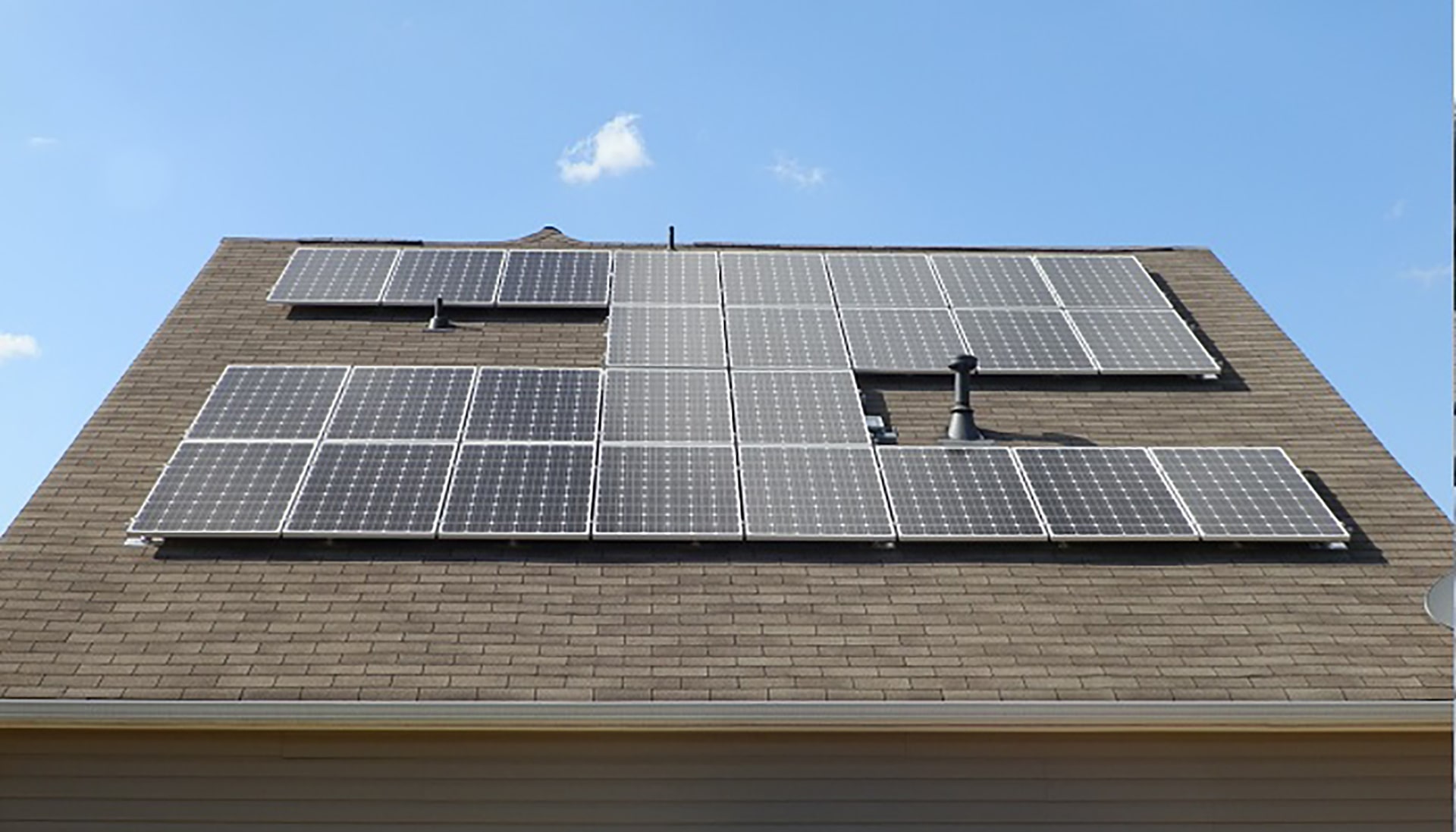
Deidra Hodges / U.S. Department of Energy via Wikimedia Commons
Back in 2012, when the Nuclear Regulatory Commission gave Georgia Power permission to build two new reactors at Plant Vogtle, the state’s utility commissioners were receiving 70 percent of their campaign support from companies or people that stood to benefit financially, or not, from their decisions, The Atlanta Journal-Constitution reported.
Over the next decade, the five commissioners approved $3.2 billion in cost overruns. ”This nuclear expansion does not make sense. It’s way over budget, way behind schedule,” said Jennette Gayer, director of the nonprofit Environment Georgia.
Although Georgia law bars utilities themselves from donating in PSC elections, nearly one-third of those campaign contributions since 2014 have come from fossil fuel and utility-related interests. Among the donors are Georgia Power executives, regulatory attorneys who regularly have business before the commission, and construction companies that specialize in utility work.
Thanks to a series of legal battles, Georgia hasn’t held elections for its PSC since 2020, and sitting commissioners have not had to disclose their campaign contributions since 2021. “The commissioners follow all campaign finance laws,” said PSC spokesman Tom Krause. “This includes disclosure of all donors and donated amounts as required by state and federal law.”
Regulator: Deal ‘fleeced’ ratepayers
Critics have similarly pointed to Oklahoma as another place where commissioners’ close relationships to the power companies they oversee might be harming residents. Members of the state’s Corporation Commission (commissions can go by various names) have taken in more than $1 million — nearly 35 percent of donations of $250 or more over the last decade — from sources linked to fossil fuel firms and utilities.
In 2022, the commission rapidly approved a plan for ratepayers to shoulder historic increases on their gas bills. The decision followed the 2021 Winter Storm Uri, which depleted the state’s gas reserves, forcing utilities to purchase gas at exorbitant prices. The $3 average cost for 1,000 cubic feet of gas skyrocketed to $1,200 for a brief time, saddling the utilities with $3 billion in extra costs.
The utilities wanted to pass that loss along to their ratepayers. After the Legislature passed a bill allowing utilities to issue bonds to finance the debt, the corporation commissioners gave the utilities exactly what they wanted. “We paid more for natural gas in three days than we do in a year,” said Nick Singer, a leader with VOICE Oklahoma, a civic engagement coalition. “And they just created a debt instrument to put it on the backs of ratepayers for the next 25 years. And they did it in a couple months.”
This spring, Oklahoma’s attorney general filed a pair of lawsuits against gas pipeline firms, alleging they helped bid up prices to historic highs during the storm.
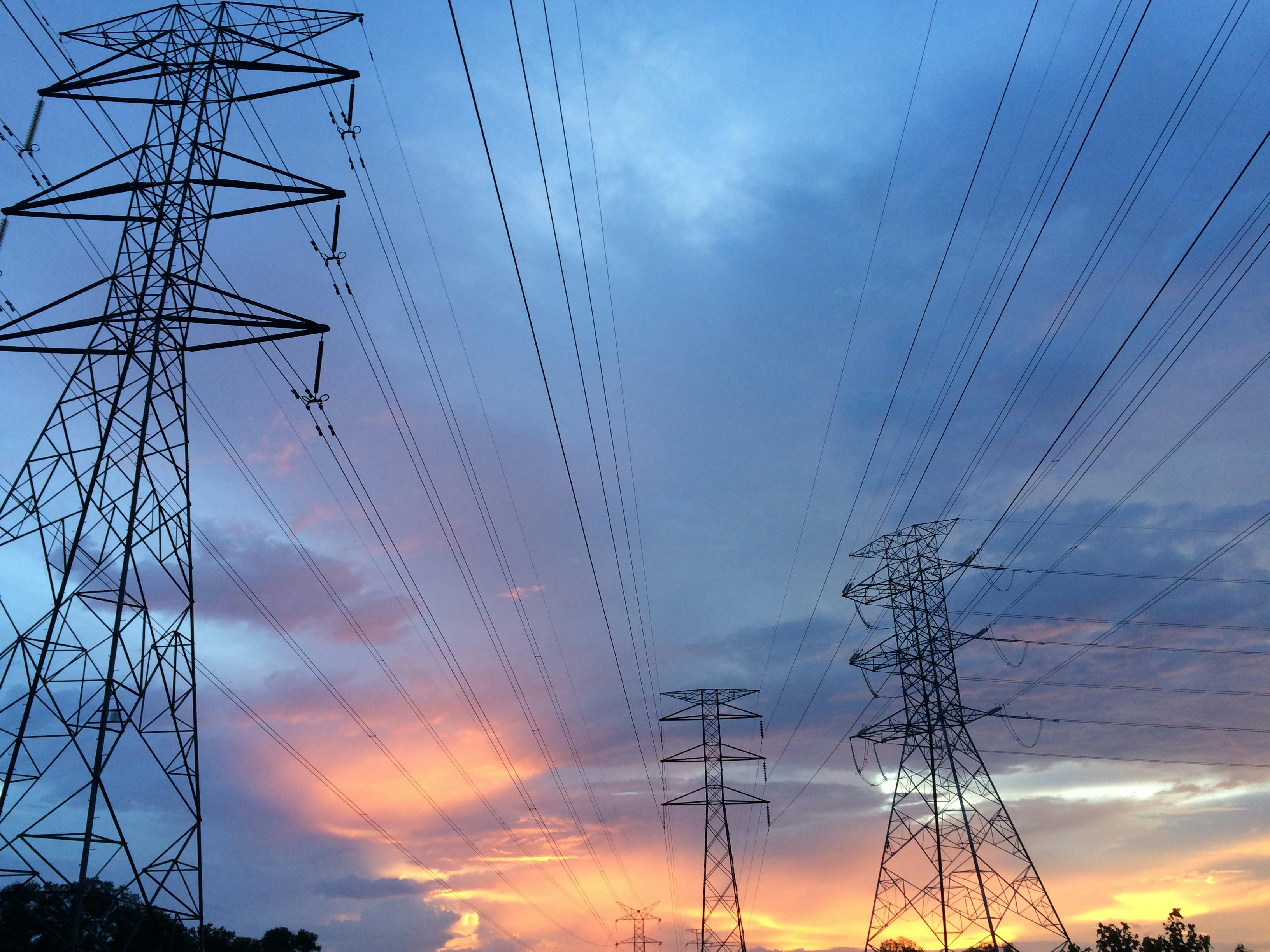
Pok Rie via Pexels
Commissioner Bob Anthony was the only one of the three commissioners to vote against securitization. In a July op-ed in The Oklahoman, he called the commission’s vote “the largest fleecing of the Oklahoma ratepayer in the history of the state.”
Asked why his fellow commissioners voted the other way , Anthony, who is serving his final term, told Floodlight: “Follow the money, that’s the heart of it.”
“Correlation does not necessarily determine causation,” Trey Davis, a spokesman for the commission told Floodlight in an email. “And, while you might want to argue a majority decision is analogous to some form of quid-pro-quo, you do not appear to have provided any substance in support of what is tantamount to a spurious and seemingly subliminal allegation.”
Missing: Solar in the Deep South
Almost all of the states that elect their commissioners are led by Republicans — only Arizona has a Democratic governor. The Deep South states in particular stand out for their dearth of renewable energy.
The Great Plains states of Oklahoma and the Dakotas generate more than 40 percent of their electricity from wind, according to the U.S. Energy Information Administration. Montana and Nebraska get almost one-fifth and one-third of their power from wind, respectively.
But the situation is markedly different in three Deep South states where commissioners are elected. Alabama, Louisiana, and Mississippi all derive less than 1 percent of their electricity from solar, despite ample solar potential in those states. (Utility-scale solar is the cheapest form of energy currently available.) That’s less than one-quarter of the national average.
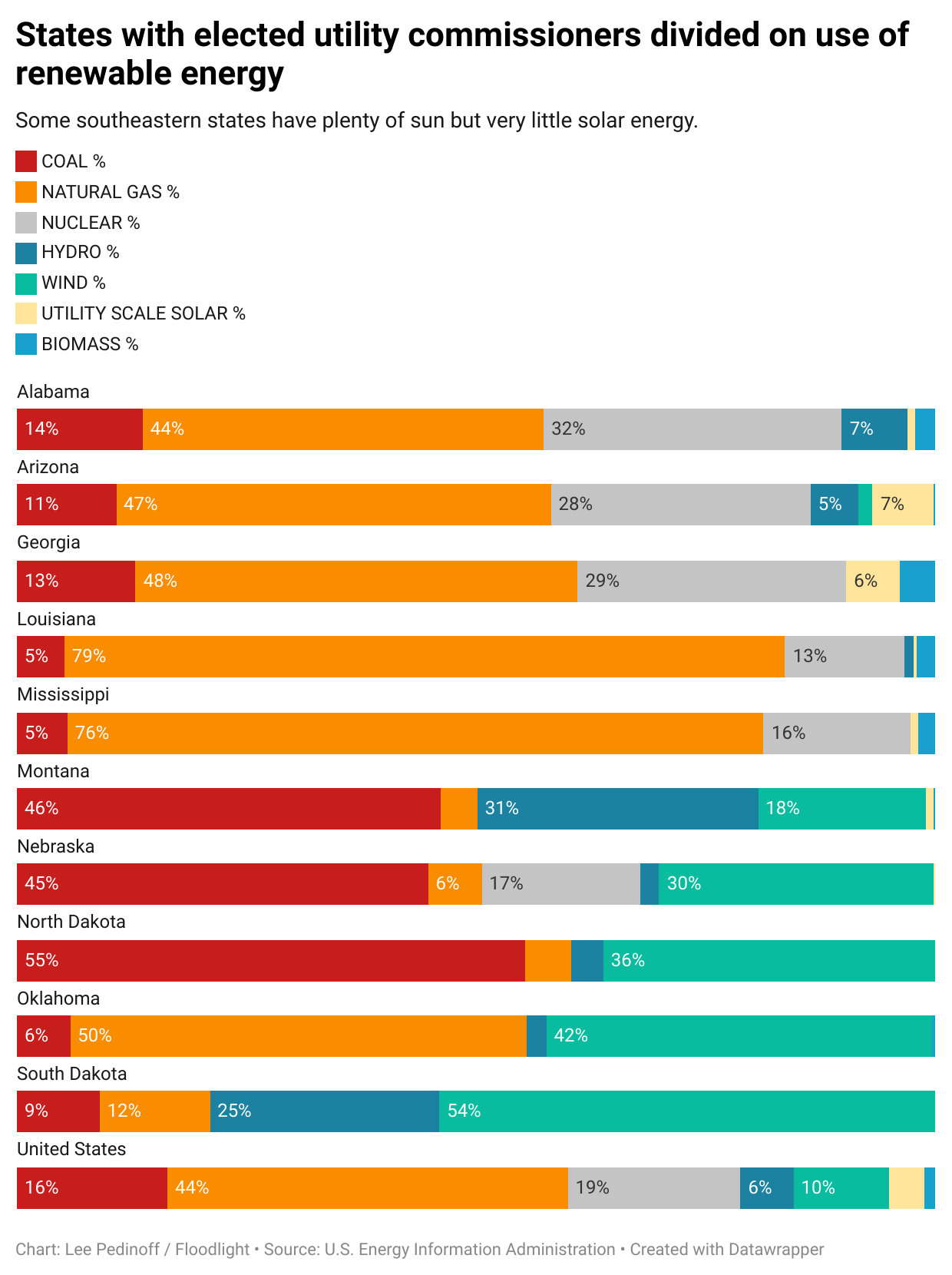
In Mississippi, where PSC members got 12 percent of their campaign cash from fossil fuel interests, commissioners are openly dismissive of calls to improve the state’s 37th-place solar energy ranking. During an August “solar summit,” two commissioners abruptly cut off public discussion and ended the session early after pro-solar representatives stood up to speak.
“What’s the result of all this fossil fuel industry money in commission elections?” said Daniel Tait, research and communications director for the Energy and Policy Institute, a utility watchdog. “Very little renewable energy, and in some cases like Alabama and Mississippi, overt hostility.”
Appointed vs elected
One state recently switched how it picks energy regulators. New Mexico, a Democratically controlled state with a powerful oil and gas industry, transitioned from electing commissioners to appointing them in 2023. The state law governing the transition also required commissioners to have degrees in fields related to energy.
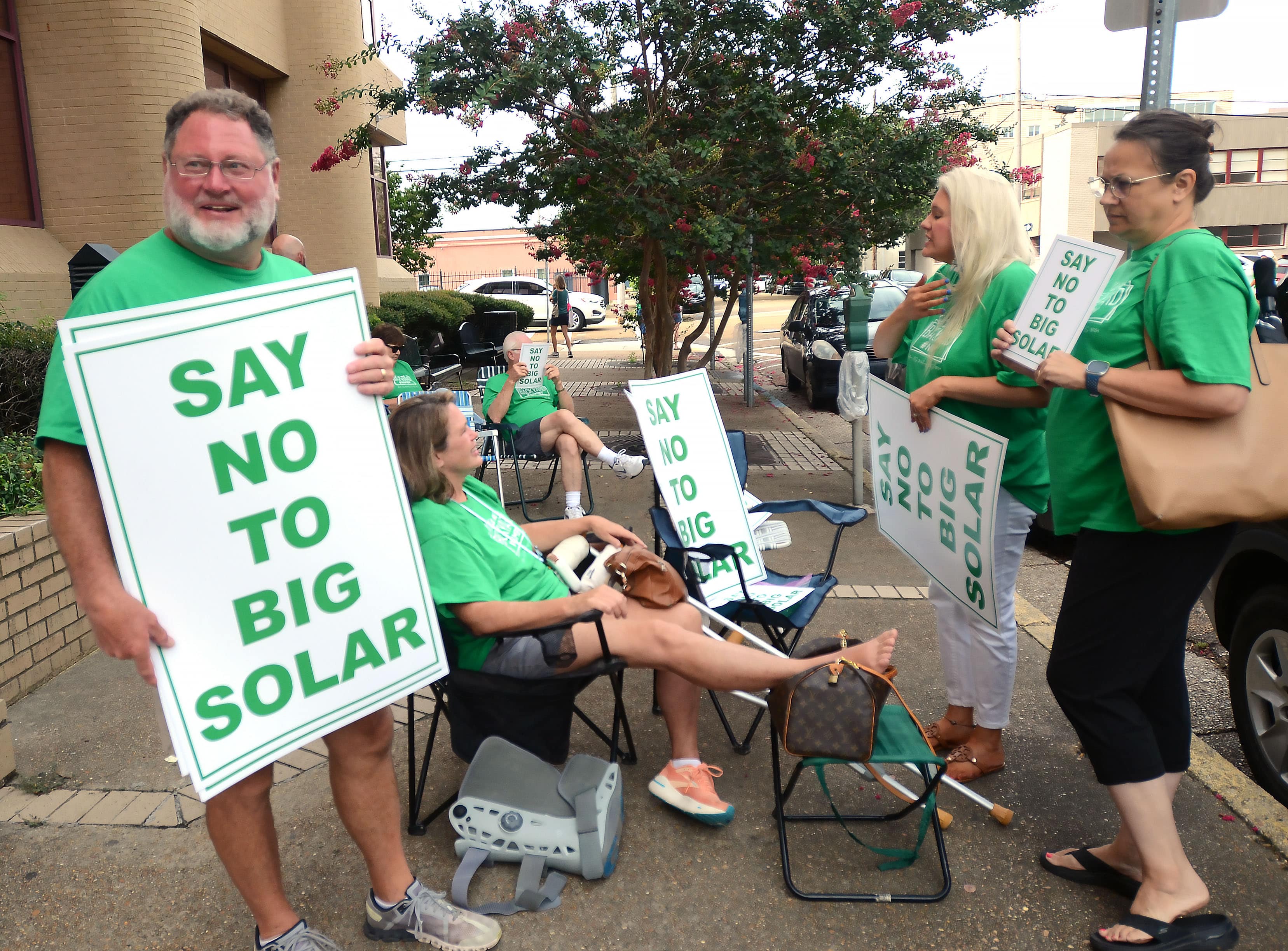
Vickie D. King / Mississippi Today
Its fresh slate of appointed commissioners has since approved a rate increase for the state’s primary utility, the Public Service Company of New Mexico — but the amount was only about a quarter of what the utility requested. The commissioners also ordered PNM to return some $115 million in excess profits to its ratepayers. The utility has appealed the clawback to the state Supreme Court.
One energy activist now says she preferred the elected commissioners, because campaign finance data made utility influence easier to trace — and counteract.
“I think that the elected commission was more democratic, even though PNM spent hundreds of thousands of dollars trying to elect the commissioners they wanted,” said Mariel Nanasi, executive director of New Energy Economy, a renewable energy nonprofit. “That backfired for them, and their preferred candidates, at least in more recent times, lost because (the spending) was exposed.”
Dark money hard to see
The patchwork nature of campaign finance record-keeping and disclosure laws in the United States makes it difficult to track all of the industry money flowing into state utility commission elections.
In Mississippi and South Dakota, for example, Floodlight journalists had to manually enter into a database thousands of campaign contributions from records that were handwritten or kept in unsearchable formats.
The money also can also come through supposedly independent groups — including political committees and so-called “dark money” 501(c)(4) nonprofit organizations — making it harder to trace. These groups are allowed to work to support (or oppose) particular candidates but are not legally allowed to coordinate with any candidate’s campaign.
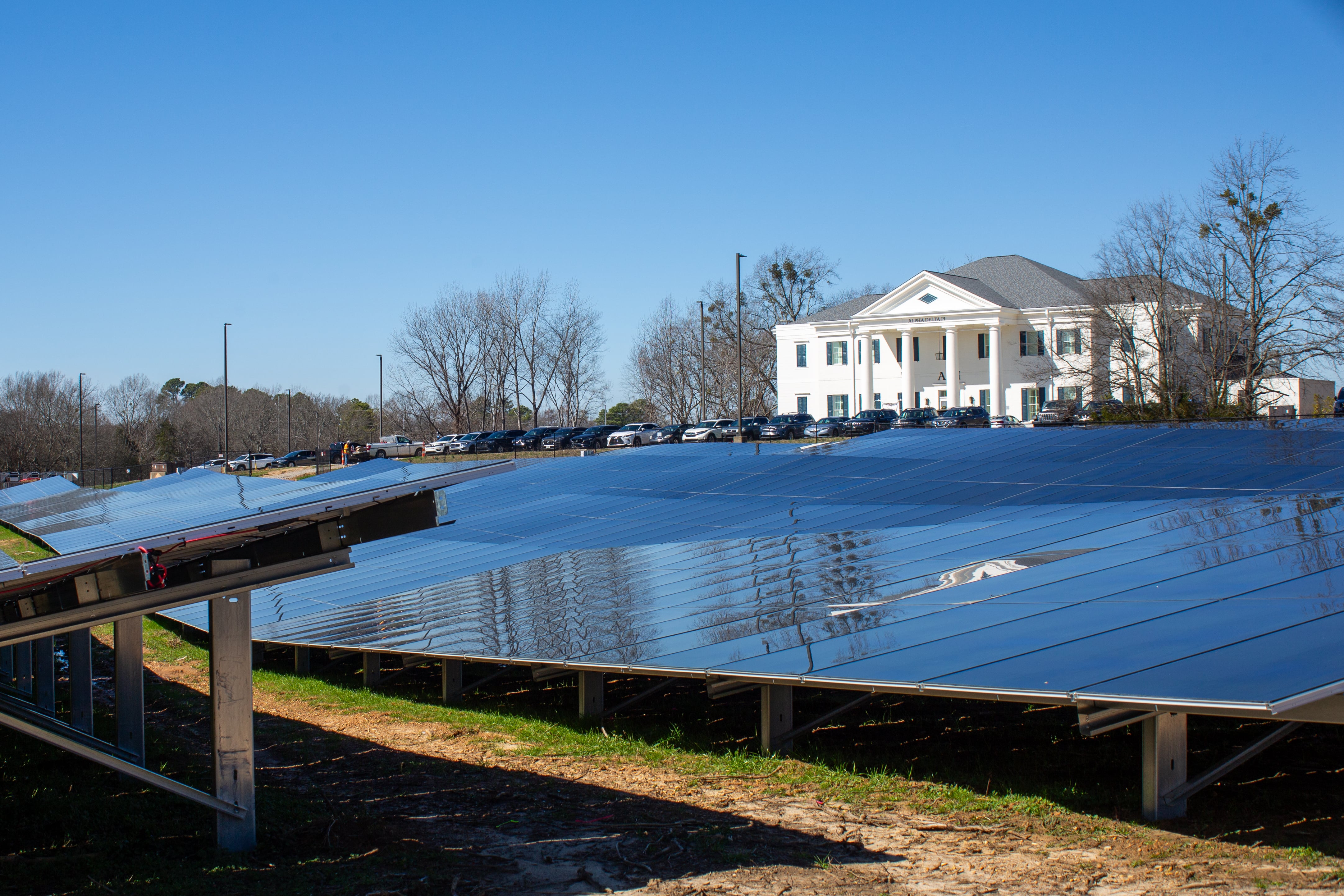
Ivy Rose Ball / The Reflector
Arizona is the only one of the nine states analyzed that makes tracking independent campaign spending easy. For example, the dominant utility, Arizona Public Service, donated nearly $4.2 million in 2016 to the Arizona Coalition for Reliable Electricity, a political action committee that then spent nearly that exact amount to support the company’s preferred commissioners. (Arizona also provides commission candidates with public financing, which was not included in our analysis.)
Over the past decade, several utilities in Arizona and Alabama have also been caught making large, unreported, and difficult-to-trace dark money contributions to support PSC candidates.
Clearly, utilities and fossil fuel interests are not donating to lawmakers and energy regulators out of the goodness of their hearts, but campaign donations, to be fair, don’t always predict how a legislator or regulator will act. Anthony, the Oklahoma commissioner, received 65 percent of his donations from utilities or fossil fuel-aligned sources. He has often been a lone dissenting voice on the commission against policies that he says put consumers on the hook for the utilities’ mistakes.
Bob Burns, an Arizona Corporation Commission member, got 41 percent of his donations from industry sources. But in 2016, he used his position to crusade for campaign finance transparency from the holding company that owns Arizona Public Service, which stood accused of using millions of dollars of dark money to support its preferred commissioner candidates. (Under pressure from the commission, the company eventually acknowledged its tactics.)
And at least one energy regulator told Floodlight he struggled over whether to take donations from the companies he oversees. “I went through the process of trying to figure out from whom do I accept a donation?” said Gary Hanson, who sits on the South Dakota Public Utilities Commission. His conclusion: “I’m either going to accept donations from everyone or from no one — you either accept from everyone or you don’t accept from anyone.”
He took the money.
Floodlight reporter Kristi E. Swartz contributed to this story. Floodlight is a nonprofit newsroom that investigates the powerful interests stalling climate action.
Source link
Mario Alejandro Ariza grist.org

